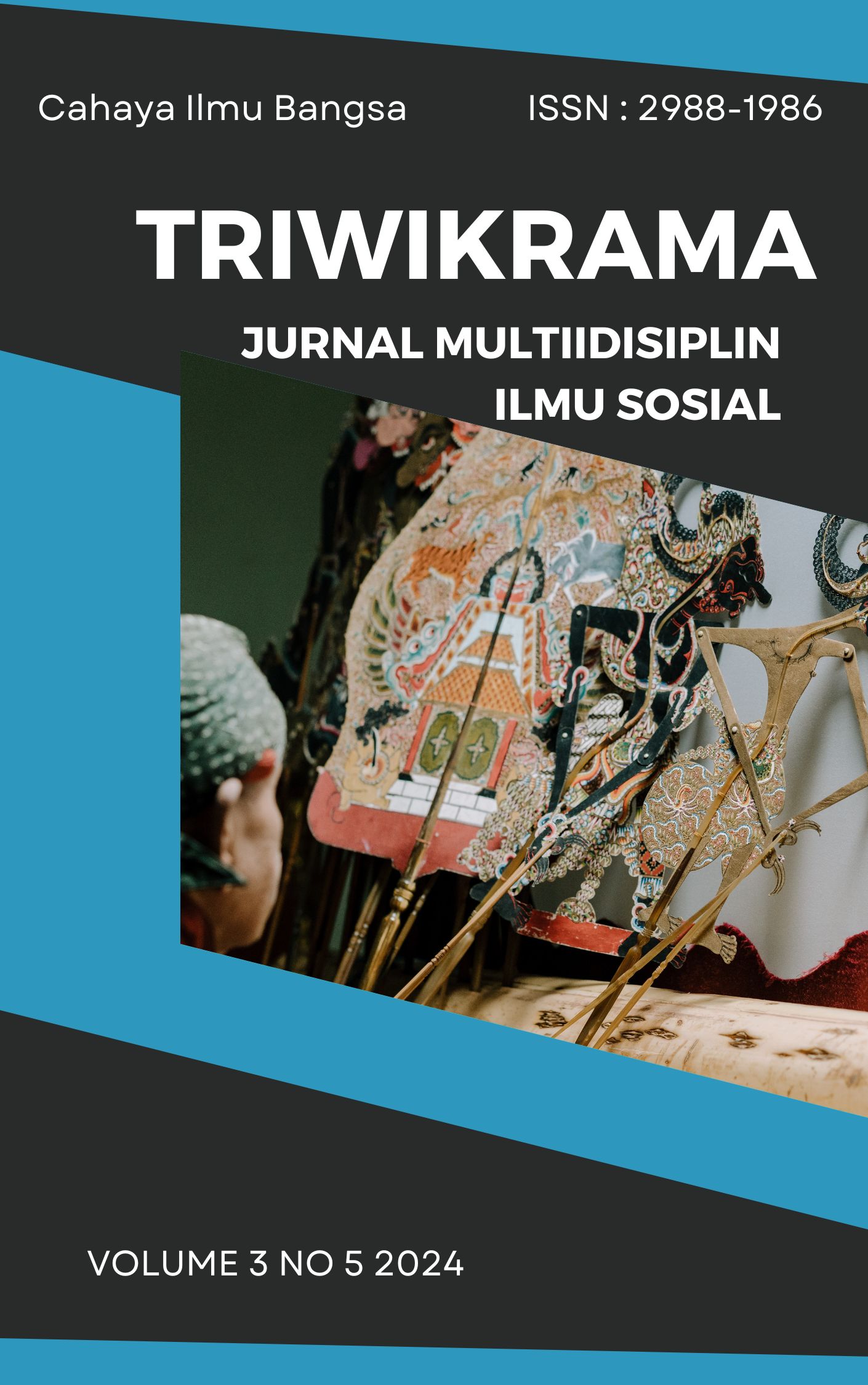PEMBERDAYAAN EKONOMI KELUARGA DHUAFA MELALUI PROGRAM BANTUAN MODAL USAHA MIKRO DI LINGKUNGAN MASYARAKAT
DOI:
https://doi.org/10.9963/exkrt413Keywords:
pemberdayaan ekonomi, keluarga dhuafa, modal usaha mikro, kemiskinan struktural, economic empowerment, underprivileged families, micro business capital, structural poverty, community empowermentAbstract
(Kemiskinan) struktural yang dialami keluarga dhuafa memerlukan intervensi pemberdayaan ekonomi yang komprehensif dan berkelanjutan untuk memutus mata rantai kemiskinan generasi. Pengabdian kepada masyarakat ini bertujuan mengembangkan model pemberdayaan ekonomi keluarga dhuafa melalui program bantuan modal usaha mikro yang terintegrasi dengan pendampingan berkelanjutan untuk meningkatkan kapasitas ekonomi dan menciptakan kemandirian usaha produktif. Metode penelitian menggunakan pendekatan kualitatif dengan desain penelitian tindakan partisipatif yang mengintegrasikan nilai-nilai teologi Al-Ma'un sebagai landasan filosofis kegiatan. Subjek penelitian dipilih melalui teknik sampling bertujuan dengan kriteria keluarga berpendapatan di bawah garis kemiskinan dan memiliki potensi usaha mikro. Teknik pengumpulan data menggunakan triangulasi wawancara mendalam, observasi partisipatif, dan dokumentasi kegiatan yang dianalisis secara deskriptif kualitatif. Implementasi program meliputi tiga pendekatan yakni karitatif melalui penyaluran sembako senilai satu juta tujuh belas ribu lima ratus rupiah, ekonomi melalui bantuan modal usaha warung, dan sosial keagamaan melalui penyediaan perlengkapan ibadah senilai dua ratus tujuh puluh ribu rupiah. Hasil evaluasi menunjukkan keberhasilan program dalam menurunkan beban utang keluarga sebesar tiga puluh persen dalam periode tiga bulan, meningkatkan stabilitas pemenuhan kebutuhan dasar, dan mengubah orientasi keluarga dari pola konsumtif menuju produktif. Program berhasil meningkatkan rasa percaya diri dan partisipasi sosial keluarga dalam kegiatan kemasyarakatan. Kesimpulan menunjukkan bahwa pendekatan multidimensional dengan integrasi aspek karitatif, ekonomi, dan sosial keagamaan terbukti efektif memberikan solusi komprehensif terhadap permasalahan kemiskinan keluarga dhuafa.
Structural poverty experienced by underprivileged families requires comprehensive and sustainable economic empowerment interventions to break the generational poverty cycle. This community service aims to develop an economic empowerment model for underprivileged families through micro business capital assistance programs integrated with continuous mentoring to enhance economic capacity and create productive business independence. The research method uses qualitative approach with participatory action research design that integrates Al-Ma'un theological values as philosophical foundation of activities. Research subjects were selected through purposive sampling technique with criteria of families with income below poverty line and having micro business potential. Data collection techniques use triangulation of in-depth interviews, participatory observation, and activity documentation analyzed descriptively qualitatively. Program implementation includes three approaches namely charitable through basic necessities distribution worth one million seventeen thousand five hundred rupiah, economic through warung business capital assistance, and socio-religious through worship equipment provision worth two hundred seventy thousand rupiah. Evaluation results show program success in reducing family debt burden by thirty percent within three months period, increasing basic needs fulfillment stability, and transforming family orientation from consumptive to productive patterns. The program successfully increased family confidence and social participation in community activities. Conclusions indicate that multidimensional approach with integration of charitable, economic, and socio-religious aspects proves effective in providing comprehensive solutions to underprivileged family poverty problems.
References
Ali, D. M., Mozzard, D., Husna, A. H. M., & Dzaljad, R. G. (2024). PERBERDAYAAN KELUARGA DHUAFA KELUARGA BAPAK SUPATNO: “MENGATASI TANTANGAN SOSIAL MELALUI PEMBERDAYAAN KAUM DHUAFA DALAM MASYARAKAT KEPADA KELUARGA BAPAK SUPATNO” EMPOWERMENT. Jurnal GEMBIRA (Pengabdian Kepada Masyarakat), 2(3), 1111–1117.
Auliya, U. N., Salsabila, S. S., Fahri, A., & Habibi, M. (2025). Program Pemberdayaan Keluarga Dhuafa Membangun Usaha Gorengan dan Nasi Uduk Keluarga Ibu Esi Warga Kelurahan Cireundeu. Jurnal Pengabdian Sosial, 2(3), 3423–3429.
Azizah, S. N., Rahcman, S. A., Putri, T. N., & Habibi, M. (2024). PEMBERDAYAAN EKONOMI KELUARAGA IBU NUR SAKINAH MELALUI PENGEMBANGAN USAHA KEDAI ES DAN MIE INSTAN. Jurnal PEDAMAS ( Pengabdian Kepada Masyarakat ), 2(4), 1053–1060.
Banerjee, A. V., & Duflo, E. (2020). The economic lives of the poor. Journal of Economic Perspectives, 21(1), 141–167. https://doi.org/10.1257/jep.21.1.141
Farihen, Gunawan, A., Fakhrurrozi, Ilham, Mundzir, Kusen, Sani, M. A. H., Mufid, N. A., Yusrizal, Sari, Z., & Zulpikor. (2018). Kemuhammadiyahan. In Penerbit Suara Muhammadiyah.
Fath, M. R. Al, Baehaqi, R., Amanda, D., & Nurhalisa, S. (2025). Pemberdayaan dhuafa melalui wirausaha galon: implementasi praktis nilai surah Al-Ma’un. SELAPARANG: Jurnal Pengabdian Masyarakat Berkemajuan, 9(2), 529–529. https://doi.org/https://doi.org/10.31764/jpmb.v9i2.29396
Husada, M. K., & Avriyanti, S. (2023). Pengaruh Pemberian Kredit Terhadap Peningkatan Usaha Mikro, Kecil Dan Menengah. Japb, 7(1), 532–549. http://jurnal.stiatabalong.ac.id/index.php/JAPB
Imbarsyah, S. J., Zahra, S. S., Nabilah, R., & Habibi, M. (2024). Program Pemberdayaan Ekonomi Keluarga Dhuafa Ibu Citra Warga Sawangan Depok Melalui Pengembangan Usaha Takoyaki. MENGABDI: Jurnal Hasil Kegiatan Bersama Masyarakat, 2(4), 39–47. https://doi.org/https://doi.org/10.61132/mengabdi.v2i4.774
Khatimah, H., & Nuradi, N. (2021). Pemberdayaan Mustahiq BAZNAS Kabupaten Sukabumi Melalui Program Bangkit Usaha Mikro Berbasis Masjid Desa Peradaban Zakat (BUMI DPZ). Jurnal Ilmiah Ekonomi Islam, 7(1), 23. https://doi.org/10.29040/jiei.v7i1.1594
Makromy, M. Z., Aqiilah, A., Syeid, M., Haq, E., & Habibi, M. (2025). Program Pemberdayaan Keluarga Dhuafa Bapak Usman Ismail Berupa Bantuan Modal Usaha. Beujroh : Jurnal Pemberdayaan Dan Pengabdian Pada Masyarakat, 3(1), 222–236. https://doi.org/https://doi.org/10.61579/beujroh.v3i1.404
Morduch, J. (2019). The Microfinance Promise. In Journal of Economic Literature (Vol. 37, Issue 4, pp. 1569–1614). https://pages.ucsd.edu/~aronatas/project/academic/Mocrofinance JEL.pdf
Ofori, K. (2022). Assessing the impact of capacity-building programs on microfinance outcomes. International Journal of Science and Research Archive, 07(01), 507–511. https://doi.org/https://doi.org/10.30574/ijsra.2022.7.1.0135
Pitt, M. M., & Khandker, S. R. (2019). The impact of group-based credit programs on poor households in Bangladesh: Does the gender of participants matter? Journal of Political Economy, 106(5), 958–996. https://doi.org/10.1086/250037
Prastyaningrum, M., Gati, V., & Rahayu, S. (2024). PENGARUH PELATIHAN, PENDAMPINGAN DAN BANTUAN MODAL TERHADAP PENGEMBANGAN UMKM PENERIMA BANTUAN PENA (PAHLAWAN EKONOMI NUSANTARA) KOTA PROBOLINGGO. Open Journal Systems, 18(12), 3331–3342. https://binapatria.id/index.php/MBI
Ribeiro, J. P. C., Duarte, F., & Gama, A. P. M. (2022). Does microfinance foster the development of its clients? A bibliometric analysis and systematic literature review. Financial Innovation, 8(1). https://doi.org/10.1186/s40854-022-00340-x
Yahya, I. S., Anandini, M., Sabrina, L., & Habibi, M. (2025). Program Pemberdayaan Keluarga Dhuafa “Bantuan Modal Usaha Warung Jajan Ibu Enur Warga Kebayoran Lama Selatan". Fundamentum: Jurnal Pengabdian Multidisiplin, 3(1), 19–26. https://doi.org/https://doi.org/10.62383/fundamentum.v3i1.640
Downloads
Published
Issue
Section
License

This work is licensed under a Creative Commons Attribution-NonCommercial-ShareAlike 4.0 International License.










